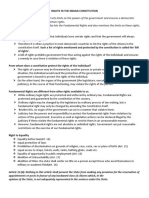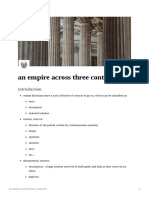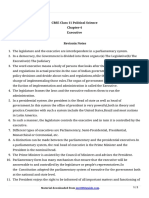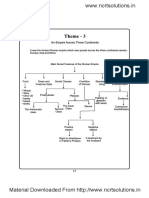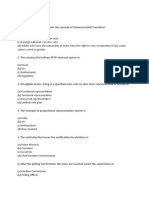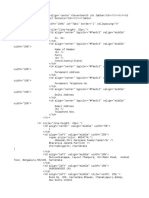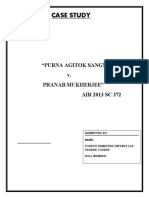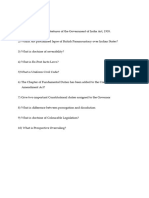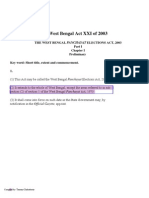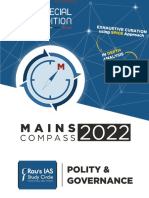0% found this document useful (0 votes)
219 views7 pagesChapter3 MCQ
The document contains multiple-choice questions related to political science, focusing on fundamental rights, voting age, electoral systems, and the Election Commission of India. It highlights key concepts such as Universal Adult Franchise, territorial representation, and the First Past the Post electoral system. The questions also assess knowledge of historical changes in voting laws and the structure of the Election Commission.
Uploaded by
KayVeeCopyright
© © All Rights Reserved
We take content rights seriously. If you suspect this is your content, claim it here.
Available Formats
Download as PDF, TXT or read online on Scribd
0% found this document useful (0 votes)
219 views7 pagesChapter3 MCQ
The document contains multiple-choice questions related to political science, focusing on fundamental rights, voting age, electoral systems, and the Election Commission of India. It highlights key concepts such as Universal Adult Franchise, territorial representation, and the First Past the Post electoral system. The questions also assess knowledge of historical changes in voting laws and the structure of the Election Commission.
Uploaded by
KayVeeCopyright
© © All Rights Reserved
We take content rights seriously. If you suspect this is your content, claim it here.
Available Formats
Download as PDF, TXT or read online on Scribd
/ 7








